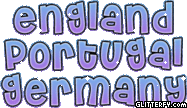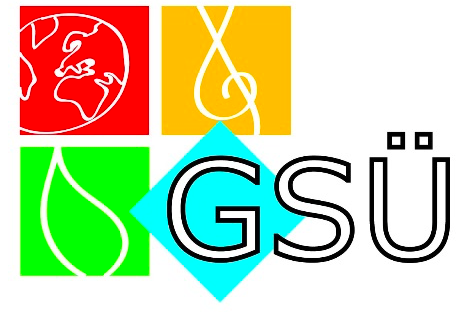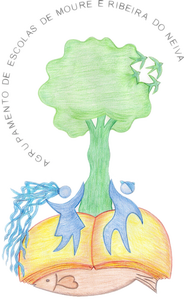
Take a look at our partner schools
Here is presentation of Tendring Technology College in UK. This is first part of the video, interviews.
Here is a video about the area where we live.
Gesamtschule Ückendorf, Gelsenkirchen - Germany

Homepage (about to be re-newed): www.gsue.de
A video about our home city Gelsenkirchen, takes from above:
Source: https://www.youtube.com/watch?v=Ozh8VjxtJl0
Agrupamento de Escolas de Moure e Ribeira do Neiva (AEMRN) - Portugal
 Agrupamento de Escolas de Moure e Ribeira do Neiva (AEMRN) is a public instituition with an autonomy contract signed with Portuguese Ministry of Education. This has a set of goals that involve the implementation of a Strategic Action Plan in which the promotion of the success is the priority dimension of the organisation. The present project aims to solve some of the breaches that have been detected while preparing the autonomy contract and that can be solved by training our staff. Our cluster of schools is located in Vila Verde’s municipality, Braga’s district. This municipality occupies an area of 229 Km2, with a population of 48.000 inhabitants. The cluster of schools Agrupamento de Escolas de Moure e Ribeira do Neiva (AEMRN) was created in the school years 2012/2013 from the joining of a set of schools called Agrupamento de Escolas de Moure and another set of schools named Agrupamento de Escolas de Ribeira do Neiva. Today, the cluster has 16 schools with 9 kindergarten ,5 primary schools and 2 middle/high schools. The area of influence of our cluster is wide going west and north-western of the municipality till the borders with Ponte de Lima and Barcelos. This year 1270 pupils attended the schools of AEMRN (plus adult classes at night, long and short courses for approximately 70 adults) and the approximate number of teaching staff & non teaching staff is 200. The social economic structure of the population is below regional average. The level of education of our pupils’ parents is, in its majority, low and so is their social and economic level. One can state that , in general, our pupils come from families that have economic problems taking into account the percentage of students that have economical help by ASE ( Ação Social Escolar)– 70%.This is an imposing reality and can become an extra hardship regarding the pupils’ study conditions and their future expectations. The educational level of parents and families are also a strong indicator as to their occupation/ area of work: more than 50% of mothers are either at home or unemployed and around 40% of fathers work on farms or in jobs connected with the building area, which has, in the last years, been under a severe crisis as our country. Therefore many of them are either unemployed or have emigrated. Having in mind all these aspects, the cluster AEMRN regards thinking and changing in the way it works as fundamental so it can respond adequately in order to educate pupils to be autonomous, responsible, critical and creative thinking, close-knit and open to today’s world demands. Regarding school results, the schools has been adapting in order to guarantee that all pupils finish their education process successfully. There have been some professional and vocational courses that have responded to our pupils’ needs. However and unfortunately there is still around 1% of school early leavers and a global retention rate of 13%( 2012/2013 data). This problem increases with the evolving of the school’s grade: 2nd cycle (10%)and 3rd cycle (15%). This may be greatly justified by success inhibitor factors such as: great disinterest and lack of endeavour in Mathematics and Languages subjects; lack of expectations towards learning from both pupils and parents; reduced cultural, social and economic level in many families; illiteracy or very low educational levels; domestic violence and alcoholism; weak participation of parents in pupils’ school lives decreasing as pupils become older. Our cluster has decided to orientate our action towards people, as they are the most important asset schools can have, emphasizing the organizational happiness as a resource that generates value tuned with knowledge and effective and efficient management. Due to the scattering of schools in our area, the board and the intermediate leaders/ coordinators are under great physical and intellectual demand/stress regarding the coordination and management of all the school. Concening to our European experience, we have had in the past 6 years 2 Comenius Multilateral partnerships, 2 Comenius assistants, an Erasmus + School partnership (KA201), as well as 2 Erasmus+VET learners and staff (KA102). We also have an European Club , that belongs to the European Clubs network. We have organised talks with European members of the Parliament and representatives of the Jacques Delors European Centre and representatives of Europedirect in Portugal. We have experienced Etwinning projects as well. We have partnerships with Portuguese intermediary partners in Erasmus+ and because of that, the languages courses of approved KA102 projects 2014-1-PL01-KA102-000432 (Zespol Szkol Agro-Technicznych im. Wincentego Witosa) and 2014-1-TR01-KA102-000748 (Bodrum Mesleki ve Teknik Anadolu Lisesi) were taught in our school headquarters. We received during last years visit from teachers in training under Erasmus+ approved project (1 EPAL Drapetsonas Technical and Vocational High School), 2014-1-TR01-KA102-000748 (Bodrum Mesleki ve Teknik Anadolu Lisesi) and 2014-1-ES01-KA102-000119 ( C.I.P.F.P. ‘Costa de Azahar’). In April 2016, we had during 1 month, 10 students from a Czech Republic VET school (Stredni skola, Havirov- Prostredni Sucha, prispevkova organizace) training in our kindergarten and primary schools. in October 2016 we had during 15 days, 6 students from Germany (WBS SCHULEN Halle) training in our kindergartens. One of the strategies undertaken in order to promote autonomy and motivate our students is the dynamic group of projects in areas such as theatre, radio, science, arts among others, the cluster of schools offers. The main idea is to focus on informal learning making the students think, search and build their own learning process and knowledge. In formal adult education we work with low skilled adults using a system that focuses in the recognition, validation and certification of competences, for 9th grade (1 or to week sessions). In secondary adult courses (12th grade) we have daily classes (19h-22h) based in competences curricula (different from young secondary school). We have also 2 times per week ITC and English courses for adults. All adults use digital tools and platforms (Google apps: Google Drive & Classroom). In our School Annual Activities Plan we have a lot of activities in the field of Intercultural & intergenerational dialogue & education.
Agrupamento de Escolas de Moure e Ribeira do Neiva (AEMRN) is a public instituition with an autonomy contract signed with Portuguese Ministry of Education. This has a set of goals that involve the implementation of a Strategic Action Plan in which the promotion of the success is the priority dimension of the organisation. The present project aims to solve some of the breaches that have been detected while preparing the autonomy contract and that can be solved by training our staff. Our cluster of schools is located in Vila Verde’s municipality, Braga’s district. This municipality occupies an area of 229 Km2, with a population of 48.000 inhabitants. The cluster of schools Agrupamento de Escolas de Moure e Ribeira do Neiva (AEMRN) was created in the school years 2012/2013 from the joining of a set of schools called Agrupamento de Escolas de Moure and another set of schools named Agrupamento de Escolas de Ribeira do Neiva. Today, the cluster has 16 schools with 9 kindergarten ,5 primary schools and 2 middle/high schools. The area of influence of our cluster is wide going west and north-western of the municipality till the borders with Ponte de Lima and Barcelos. This year 1270 pupils attended the schools of AEMRN (plus adult classes at night, long and short courses for approximately 70 adults) and the approximate number of teaching staff & non teaching staff is 200. The social economic structure of the population is below regional average. The level of education of our pupils’ parents is, in its majority, low and so is their social and economic level. One can state that , in general, our pupils come from families that have economic problems taking into account the percentage of students that have economical help by ASE ( Ação Social Escolar)– 70%.This is an imposing reality and can become an extra hardship regarding the pupils’ study conditions and their future expectations. The educational level of parents and families are also a strong indicator as to their occupation/ area of work: more than 50% of mothers are either at home or unemployed and around 40% of fathers work on farms or in jobs connected with the building area, which has, in the last years, been under a severe crisis as our country. Therefore many of them are either unemployed or have emigrated. Having in mind all these aspects, the cluster AEMRN regards thinking and changing in the way it works as fundamental so it can respond adequately in order to educate pupils to be autonomous, responsible, critical and creative thinking, close-knit and open to today’s world demands. Regarding school results, the schools has been adapting in order to guarantee that all pupils finish their education process successfully. There have been some professional and vocational courses that have responded to our pupils’ needs. However and unfortunately there is still around 1% of school early leavers and a global retention rate of 13%( 2012/2013 data). This problem increases with the evolving of the school’s grade: 2nd cycle (10%)and 3rd cycle (15%). This may be greatly justified by success inhibitor factors such as: great disinterest and lack of endeavour in Mathematics and Languages subjects; lack of expectations towards learning from both pupils and parents; reduced cultural, social and economic level in many families; illiteracy or very low educational levels; domestic violence and alcoholism; weak participation of parents in pupils’ school lives decreasing as pupils become older. Our cluster has decided to orientate our action towards people, as they are the most important asset schools can have, emphasizing the organizational happiness as a resource that generates value tuned with knowledge and effective and efficient management. Due to the scattering of schools in our area, the board and the intermediate leaders/ coordinators are under great physical and intellectual demand/stress regarding the coordination and management of all the school. Concening to our European experience, we have had in the past 6 years 2 Comenius Multilateral partnerships, 2 Comenius assistants, an Erasmus + School partnership (KA201), as well as 2 Erasmus+VET learners and staff (KA102). We also have an European Club , that belongs to the European Clubs network. We have organised talks with European members of the Parliament and representatives of the Jacques Delors European Centre and representatives of Europedirect in Portugal. We have experienced Etwinning projects as well. We have partnerships with Portuguese intermediary partners in Erasmus+ and because of that, the languages courses of approved KA102 projects 2014-1-PL01-KA102-000432 (Zespol Szkol Agro-Technicznych im. Wincentego Witosa) and 2014-1-TR01-KA102-000748 (Bodrum Mesleki ve Teknik Anadolu Lisesi) were taught in our school headquarters. We received during last years visit from teachers in training under Erasmus+ approved project (1 EPAL Drapetsonas Technical and Vocational High School), 2014-1-TR01-KA102-000748 (Bodrum Mesleki ve Teknik Anadolu Lisesi) and 2014-1-ES01-KA102-000119 ( C.I.P.F.P. ‘Costa de Azahar’). In April 2016, we had during 1 month, 10 students from a Czech Republic VET school (Stredni skola, Havirov- Prostredni Sucha, prispevkova organizace) training in our kindergarten and primary schools. in October 2016 we had during 15 days, 6 students from Germany (WBS SCHULEN Halle) training in our kindergartens. One of the strategies undertaken in order to promote autonomy and motivate our students is the dynamic group of projects in areas such as theatre, radio, science, arts among others, the cluster of schools offers. The main idea is to focus on informal learning making the students think, search and build their own learning process and knowledge. In formal adult education we work with low skilled adults using a system that focuses in the recognition, validation and certification of competences, for 9th grade (1 or to week sessions). In secondary adult courses (12th grade) we have daily classes (19h-22h) based in competences curricula (different from young secondary school). We have also 2 times per week ITC and English courses for adults. All adults use digital tools and platforms (Google apps: Google Drive & Classroom). In our School Annual Activities Plan we have a lot of activities in the field of Intercultural & intergenerational dialogue & education.
School Cluster website: http://aemourerneiva.ccems.pt/
School Cluster Facebook: https://www.facebook.com/agrupamento.escolasdemoure
Our vídeo presentation made by our VET learners:
Amandus-Abendroth Gymnasium
Cuxhaven Germany

A Website about our school and school life in Germany created by some of our sixth formers: http://enhp.aagabi11.de/
A film about our school
A film about our hometown Cuxhaven